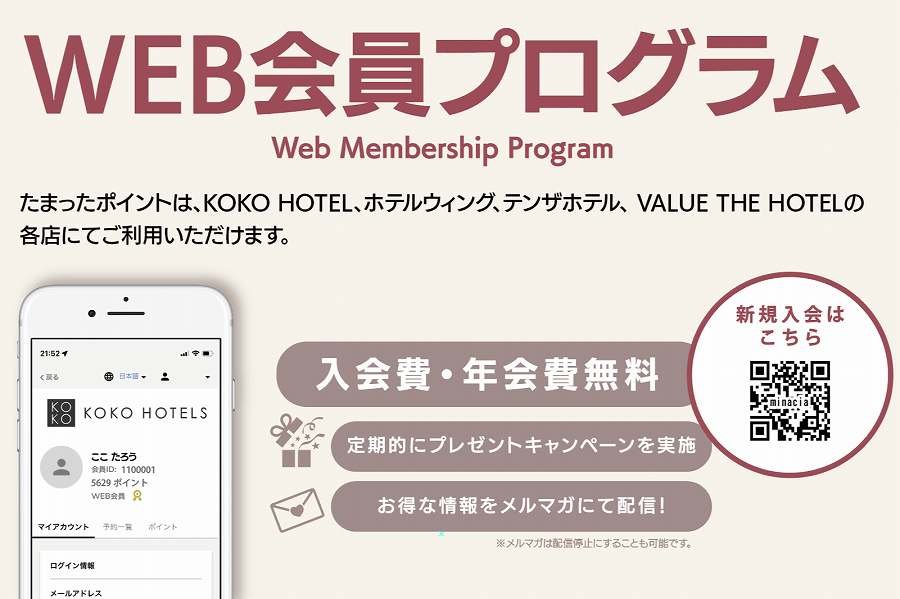Hotels & Accommodations
Choice Hotels launches campaigns for extended stay brands

US: Franchisor Choice Hotels has rolled out two marketing campaigns designed to spotlighting its four extended stay brands.
The brands include Everhome Suites, MainStay Suites, Suburban Studios, and WoodSpring Suites.
The Stay in Your Rhythm campaign focuses on all four brands and shows how business and leisure travellers can maintain their routines during long-term stays.
The WoodSpring Way campaign highlights the hospitality and service of WoodSpring Suites staff. The featured general managers span Chicago, Denver, Atlanta and Orlando.
Both campaigns are driven by research and guest feedback showing that travellers value efficiency, cleanliness, good value, and flexibility during their stay.
The campaigns will run through the rest of the year and into 2026, across various channels including paid social media, ConnectedTV, digital display and online video.
“As leaders in the extended stay segment, Choice Hotels has long understood that this category is unlike any other in the hospitality industry, defined by distinct guest expectations that we continuously strive to exceed,” said Noha Abdalla, chief marketing officer, Choice Hotels.
“These first of their kind campaigns reflect our extensive understanding of why people stay longer – from work assignments and relocations to life transitions and personal journeys. No matter the reason, we know our guests aren’t looking to escape their routines – they’re looking to maintain them. That’s why we take pride in our unique position to offer guests what matters most: consistency, comfort and connection,” she said.
Matt McElhare, VP extended stay brands, Choice Hotels, added: “We’ve designed our extended stay properties to ensure we provide guests with everything they need when circumstances take them away from home for weeks at a time.
“Through the launch of our innovative campaigns, we aim to educate the growing population of extended stay travellers on how our brands offer the best value in the industry while also profiling the unique culture in our flagship brand, WoodSpring Suites, which has consistently set the standard for guest satisfaction in the segment. We’re especially thankful to our owners and management company teams that help to build and sustain this culture on property, consistently delivering a great guest experience.”
Highlights:
• Choice Hotels has launched two marketing campaigns to spotlight the company’s four extended stay brands.
• Stay in your Rhythm highlights how business and leisure travellers can maintain their routines during extended stays.
• The WoodSpring Way emphasises the service culture of its WoodSpring Suites staff, featuring GMs from US cities including Chicago and Orlando.
• Running through 2026, marketing spans digital platforms including paid social, ConnectedTV, online video, and display ads.
Hotels & Accommodations
Anti-migrant protests continue at Epping hotel

Hundreds of protesters have gathered outside a hotel housing asylum seekers in Essex.
About 300 anti-migrant protesters are at the The Bell Hotel, Epping, according to BBC journalist James Bryant.
Some are waving St George’s flags while others have banners and signs with slogans including: “Protect our kids”.
Protests, including some violent clashes, began at the hotel on 13 July after a man living there was arrested and subsequently charged with sexual assault, harassment and inciting a girl to engage in sexual activity.
Hadush Kebatu, 41, from Ethiopia, has denied the offences and is in custody.
Police say 2,000 pro-immigration counter-protesters have been making their way to the hotel from the town’s station to a pen close to the anti-migrant protest.
Some are chanting “Say it loud, say it clear – refugees are welcome here”, and holding posters, banners and placards with slogans including “Unity is strength” and “Stand up to racism”.
They have been surrounded by police officers.
Meanwhile, some of the anti-migrant protesters have been singing along to patriotic music, including Rule, Britannia!.
Several police cars, including riot vans, have started to arrive in the area.
As well as Essex Police, officers from the Metropolitan, Durham, Kent, Surrey, Sussex, West Midlands, Leicestershire, Northamptonshire, Cheshire, Dyfed-Powys and Hampshire forces are at the scene.
The county force has put a dispersal order in place from 12:00 BST on Sunday to 08:00 on Monday, covering the town centre, transport hubs and networks.
This gives police the power to direct anyone suspected of committing anti-social behaviour, or planning to do so, to leave the area or face arrest.
Ten people have been charged with offences in relation to this month’s disorder in the town, with defendants due to appear at Chelmsford Crown Court on 18 August.
On Saturday, about 400 anti-immigration protesters and 150 counter-protesters gathered for a demonstration outside a hotel in the Norwich area.
Police said no arrests were made there.
Hotels & Accommodations
KOKO HOTEL and VALUE THE HOTEL Launch New Web Point Program

KOKO HOTEL and VALUE THE HOTEL have launched a new web point program starting July 1st.
The KOKO HOTELS “Web Point Program” offers a 10% discount on reservations made through the official website when members log in, on top of earning 3% of the usage amount (excluding tax) in points. Accumulated points can be used not only at KOKO HOTELS but also at group hotels such as HOTEL WING and TENZA HOTEL. Points can be redeemed at a rate of 1 point per yen when booking through the official website. Additionally, there are benefits such as a cash-back offer of 10,000 yen when 8,000 points are accumulated.
To commemorate the start of the new point program, a 10,000-point giveaway campaign will be conducted from July 1st to September 30th. 55 participants who register as members on the official website and make reservations and stay during the promotion period will be selected by lottery to receive 10,000 points.
Hotels & Accommodations
How Tokyo Is Becoming Sustainable

Tsubasa Yokote, representative director of Blueground Japan, in his Tokyo office.
Aren Elliott
In a wood-paneled boardroom with a commanding view of Tokyo’s Imperial Palace, Tsubasa Yokote is trying to explain the city’s approach to sustainable tourism. It’s not easy.
Yokote, representative director of Blueground Japan, says sustainability — best exemplified by the concept of mottainai, which emphasizes avoiding waste — has been part of Japanese society for centuries. Many of the tourism industry’s recent efforts to become more sustainable are a direct result of that cultural practice rather than a new movement spurred by climate change or politics.
You can see it in Blueground’s rental apartments. It’s in the recycling stations in the basements, which are standard in most Tokyo apartments. And it’s also in the efficiency features that allow you to regulate energy consumption in your home.
“All these features are beneficial for the environment,” he explains.
Blueground Japan, a collaboration with real estate developer Mitsubishi Estate, is a case study in mottainai. Each new apartment is designed with sustainability on several levels — not just in terms of saving energy but also of creating a sustainable business. The medium- and long-term housing market for furnished rentals is still developing, so when Yokote talks about sustainability, he is also talking about Blueground’s sustainability.
“Tokyo is upholding its high standard of sustainability, from its world-famous public transit system to dauntingly strict garbage sorting rules,” says Evelyn Gong, who teaches operations management at Carnegie Mellon University’s Tepper School of Business. She says the city is moving steadily towards its goal of achieving net zero emission by 2050, and its 2030 midway targets such as heightened renewable energy use and halved food waste.
The living room in a Blueground rental in Tokyo.
Blueground
How Tokyo’s tourism industry embraces mottainai
While Blueground Japan exemplifies sustainable urban living, Tokyo’s broader travel sector is weaving traditional mottainai values into innovative eco-practices. Here are a few examples of how hotels, restaurants, and cultural experiences are leading the charge:
Palace Hotel Tokyo’s circular economy
The hotel’s Eco-Palace initiative turns kitchen waste into fertilizer for local farms. The hotel then buys the resulting crops of rice and produce for incorporation into the staff canteen’s daily menu.
Kintsugi: The art of sustainable beauty
Many Tokyo luxury hotels, including the Palace, offer kintsugi workshops, where guests repair broken pottery with gold — a centuries-old practice that embodies mottainai. Couture designer Kevan Hall, inspired by a Tokyo workshop, noted, “It’s a poetic way to transform flaws into heritage.”
Carbon-neutral hotel stays
The Tokyo Station Hotel offsets 100 percent of guest stay emissions, while the Imperial Hotel Tokyo replaced plastic amenities with bamboo and wood. Both properties use CO₂-free electricity and hold top certificates in sustainable development.
Zero-waste dining
The Michelin-starred Daigo restaurant practices shojin-ryori, a Buddhist culinary tradition that minimizes waste. Chef Yusuke Nomura crafts plant-forward kaiseki menus using local ingredients, thereby reducing methane emissions.
Rebuilding communities
Walk Japan, a tour operator, partners with rural towns in places like earthquake-hit Noto Peninsula, where travelers help rebuild homes and revive abandoned rice paddies. Their tours funnel revenue into local economies, which are trying to counter population decline.
Eco-conscious lodging
Boutique projects like Nipponia Sawara repurpose historical warehouses into hotels using local materials. At Mt. Fuji’s Ecologic, guests join workshops and bike tours supporting nearby farms.
Sustainability as a lifestyle in Tokyo
One of the best ways of experiencing Tokyo’s sustainability is by living it. Blueground, which offers furnished apartment rentals in the city, is tapping into a new market of digital nomads and people who are relocating to Japan.
Yokote says Blueground’s apartments come with multilingual support to help customers make sense of Japan’s mottainai practices.
For many visitors, understanding sustainability in Tokyo means more than admiring eco-initiatives from afar — it means stepping into the rhythms of daily life. But Japan’s rental housing market often presents hurdles for non-Japanese residents, from stringent lease terms and language barriers to cultural nuances around waste management and energy use. Blueground’s furnished apartments aim to bridge this gap, says Yokote.
“That means access to housing designed with Japanese values — like minimalism and energy efficiency — while providing the tools to navigate systems that might otherwise feel inaccessible,” he says.
By embedding sustainability into the fabric of everyday living, Blueground’s apartments become gateways to Japan’s eco-conscious ethos. Guests learn to separate trash not as a performative act, but as a reflection of mottainai’s enduring influence. They interact with systems like energy-efficient appliances and water-saving fixtures, which are standard in Japanese homes but often unfamiliar to outsiders.
“When you live here, you start to see how sustainability isn’t a trend. It’s a mindset passed down through generations, and now it’s something visitors can truly inhabit,” says Yokote.
In Tokyo, looking to the past to create a sustainable future
Tokyo’s journey toward sustainability is not a race to reinvent itself, as it is in other tourism destinations. At its core lies mottainai, a philosophy that has long whispered the value of resourcefulness.
From Blueground Japan’s energy-efficient apartments, where global nomads navigate energy-saving systems and strict recycling protocols, to the Palace Hotel Tokyo’s closed-loop kitchens and the golden scars of kintsugi workshops, the city is trying to prove that sustainability thrives when it’s rooted in heritage.
These efforts are neither performative nor peripheral. They are pragmatic evolutions of tradition: Michelin-starred chefs reviving Buddhist culinary ethics to cut food waste, hotels offsetting emissions while preserving the elegance of a bygone era, and rural tours that transform travelers into stewards of revival. Even the challenges — deciphering trash-sorting rules or mastering apartment energy systems — underscore a deeper truth: Sustainability demands both systemic rigor and individual adaptation.
“We’re not just saving energy,” Yokote says. “We’re building a sustainable bridge.”
But Tokyo’s greatest lesson may be its quiet demonstration that the future of sustainability lies not in discarding the past, but maintaining and refining it — one repurposed warehouse, revived rice paddy, and thoughtfully sorted trash bag at a time. In a world grappling with climate urgency, that may be a lesson for other tourism destinations.
-

 Brand Stories6 days ago
Brand Stories6 days agoBloom Hotels: A Modern Vision of Hospitality Redefining Travel
-

 Brand Stories1 day ago
Brand Stories1 day agoCheQin.ai sets a new standard for hotel booking with its AI capabilities: empowering travellers to bargain, choose the best, and book with clarity.
-

 Destinations & Things To Do1 week ago
Destinations & Things To Do1 week agoUntouched Destinations: Stunning Hidden Gems You Must Visit
-

 AI in Travel1 week ago
AI in Travel1 week agoAI Travel Revolution: Must-Have Guide to the Best Experience
-

 Brand Stories3 weeks ago
Brand Stories3 weeks agoVoice AI Startup ElevenLabs Plans to Add Hubs Around the World
-

 Brand Stories2 weeks ago
Brand Stories2 weeks agoHow Elon Musk’s rogue Grok chatbot became a cautionary AI tale
-

 Destinations & Things To Do1 day ago
Destinations & Things To Do1 day agoThis Hidden Beach in India Glows at Night-But Only in One Secret Season
-

 Asia Travel Pulse3 weeks ago
Asia Travel Pulse3 weeks agoLooking For Adventure In Asia? Here Are 7 Epic Destinations You Need To Experience At Least Once – Zee News
-

 AI in Travel3 weeks ago
AI in Travel3 weeks ago‘Will AI take my job?’ A trip to a Beijing fortune-telling bar to see what lies ahead | China
-

 Brand Stories3 weeks ago
Brand Stories3 weeks agoChatGPT — the last of the great romantics







You must be logged in to post a comment Login